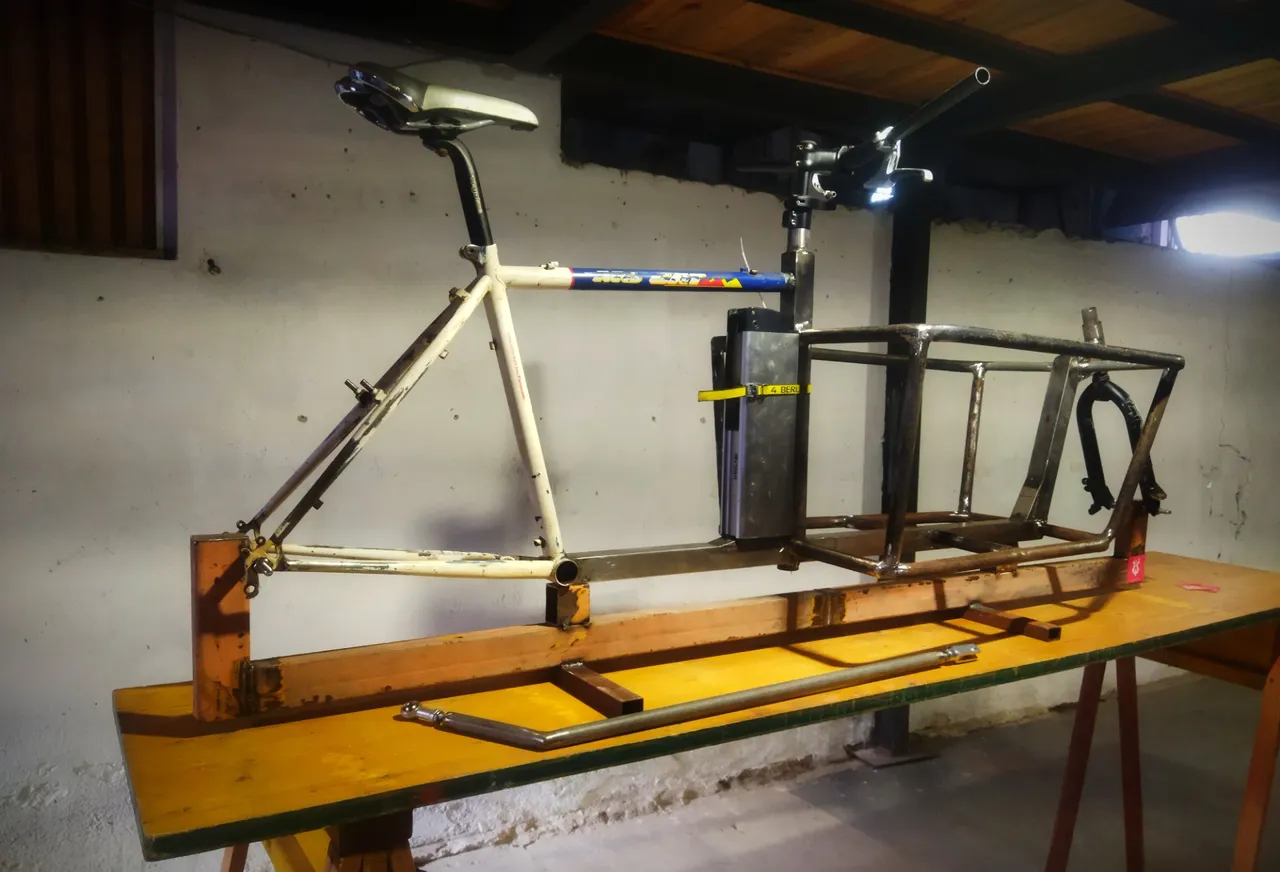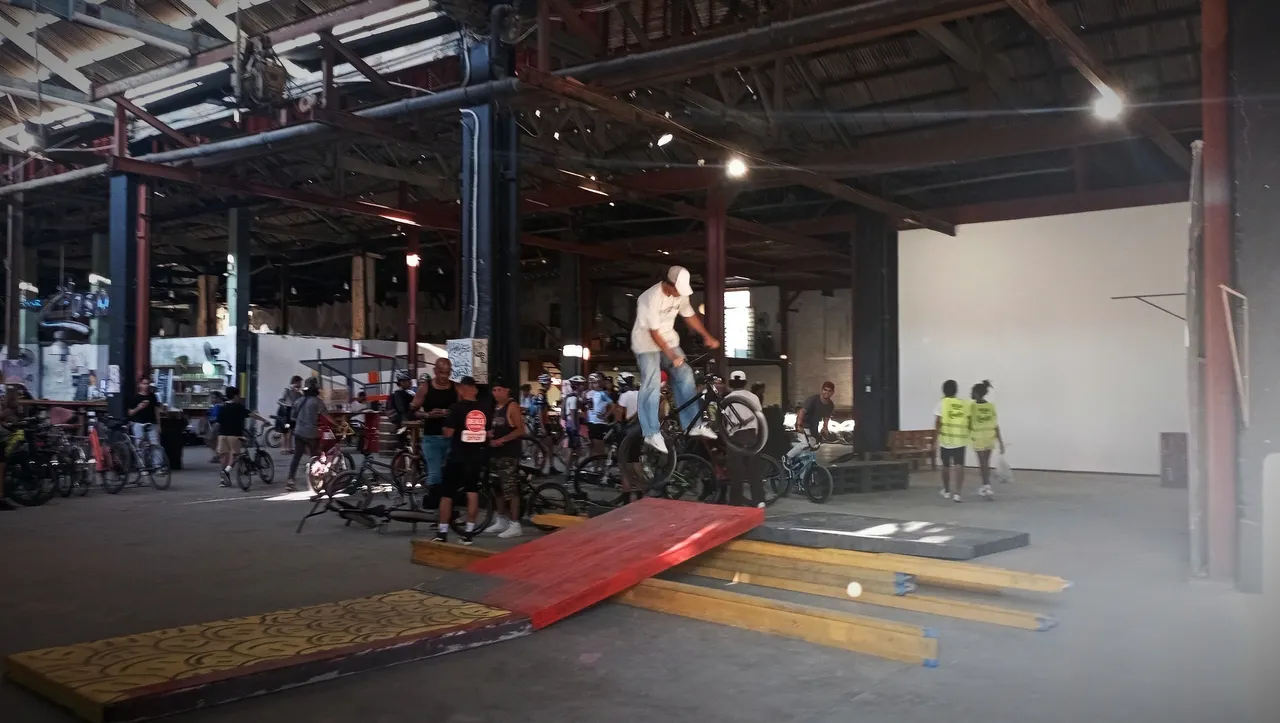Cubans are experiencing up to twenty-four hours without electricity due to the lack of fuel in the country. Lines at service stations can last up to a day. Public transport is nonexistent, yet life goes on.
The average Cuban has had to find solutions and tune up their old bicycles.
Today, electric motorcycles, scooters, and bicycles dominate the streets of Cuba (at least they are seen more than they were years ago)

From the need to unite cyclists and create an even stronger bond in the face of the harsh situations the country faces, Citykleta was born. Here you can learn more about them, and with Citykleta, the Bicycle Festival was established in 2023.
In 2025, the third edition took place. Today, I want to share my experience from two days of the event.
In 2024, I wrote a similar post: Read it here.
This year, the festival would occupy Estudio 50 for four days, with a broader program than the previous edition.
Four days, with activities for the whole family.
First Day
Thursday was the day of Bicilab, a space held at each edition to bring together different sectors of society and achieve a project that helps the cycling movement.
This year, Bicilab.beta emerged, and the most interesting part of this space was the presentation of a cargo bike made from recycled parts and others not so recycled—the first of its kind in Cuba.
An ingenious idea that could be developed by the state private sector and would help a large part of the Cuban population. As they say here... we always carry a load (always with our hands full).

Then came other conferences as part of this space. The one I enjoyed the most was given by a young woman about what it’s like to be a cycling mother.
She, along with her husband, are visible faces in Citykleta and great lovers of bicycles. If you think of a family on bikes, they are it.
The conference was about the challenges, difficulties, and successes of being a woman, mother, and cyclist in Cuba.
I liked it and it made me think that if she could pedal while pregnant, there are no excuses for not getting on a bike.
That said, as a doctor, I don’t recommend riding a bike while pregnant.
On the first day, a workshop for free repairs was set up, which is one of the festival's core elements. Wherever the festival goes, the local community takes full advantage of it.
That evening, "Rueda al Cine" premiered.
Last year, I participated in a similar event at Parqueo and loved it.

In this edition, the cinema would run for three days, screening short films related to cycling, followed by a good evening with several musical groups.
Citykleta had it all well thought out.
The photos I saw from the event left me wanting to experience it (time didn’t allow, but there will be another occasion)
Second Day
The characteristic tours of this event debuted.
I couldn’t participate this day, but I’m sure if you visit @nanixxx’s profile, you’ll find many more details.
I’m sure she loved the event, and I was very pleased to see her there, even though we saw each other very little. We need to change that, Nanixxx! 😂
Third Day
The festival started early with a tour to Marina Hemingway, but I had other plans. That day I wasn’t alone, and doing the tour would be too demanding for my companion.
In upcoming posts, I’ll tell you what I did that day—my own tour.
At the end of the day, there was a somewhat rustic BMX show.

Watching it for a few minutes left me with a lot of respect for these bike enthusiasts. I’ll never reach that level of self-confidence to perform those maneuvers.
But it was very stimulating to watch from the outside.
The day at Estudio 50 started slow, but we earned a Belgian Radler beer—a curious way to turn lemon into beer. This wasn’t available in Cuba before, and it helps a lot with the Caribbean heat.
The last day of the festival was reserved for a bike picnic, which must have been an incredible experience. I participated in one last year and loved the concept.
Last Thoughs
This year, the Bike Festival clearly evolved. It not only grew in interesting activities but also in the number of cyclists.
The venue change also suited it well.
The large indoor space at Estudio 50 is greatly appreciated. The Cuban Art Factory (FAC) wasn’t a bad host in 2024, but the space is limited and not very bike-friendly.
This year, projects and young people who are making a difference in countries like Colombia or Germany also joined in.
Clearly, Citykleta has matured, and the festival is the biggest beneficiary.
Although this time, due to time constraints, I could only participate for two days, I enjoyed them much more than in 2024. They surpassed expectations, and I’m already looking forward to the next edition.
If you want to see top content about the festival, check out @nanixxx’s profile and show your support over there.
Tell me if there’s a similar movement in your country! What’s your experience with biking? Or if there’s anything you want to share, I’d love to read your comments.
Read you soon!
[dahpilot]
All images in the post are my own.
